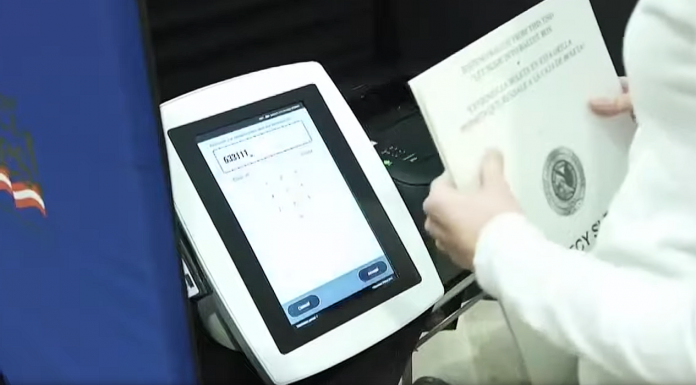An election integrity group filed a lawsuit against Georgia on Tuesday, seeking a ban on the use of all Dominion Voting Systems touchscreen ballot-marking technology in the state.
VoterGA, which also led a suit against Fulton County to push for an inspection of the county’s 2020 election ballots, asked the Fulton County Superior Court to declare the state’s use of Dominion’s voting machines a violation of state elections law.
The group, fronted by election-integrity activist Garland Favorito, pointed to state election code that says voting systems must “print an elector verifiable paper ballot” and “produce paper ballots which are marked with the elector’s choices in a format readable by the elector.”
According to the lawsuit, Dominion’s voting machines generate paper ballots that voters can visually verify, but they also include a QR code that cannot be visually verified without the use of a scanning device.
“There will be immediate irreparable damage to the Petitioners and the Citizens of Georgia through their loss of confidence in the integrity of the election process by virtue of the use of ballot marking devices that fail to comply with state law,” the lawsuit stated.
A similar lawsuit was brought against Georgia last October, but U.S. District Judge Amy Totenberg declined to stop the state from using Dominion’s machines for jurisdictional reasons.
Totenberg admitted, however, that Dominion’s machines have vulnerabilities that election officials should consider.
She specifically mentioned the statute requiring verifiable ballot-marking and said Dominion’s system “does none of those things.”
“At very least, the court cannot fathom why, post-election, the state and Dominion would not at least be moving toward consideration of the software upgrade option Dominion originally promised, allowing voters to cast ballots that are solely counted based on their voting designations and not on an unencrypted, humanly unverifiable QR code that can be subject to external manipulation and does not allow proper voter verification and ballot vote auditing,” Totenberg wrote.

